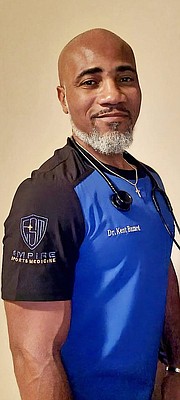In the world of professional sports, injuries are an unfortunate and often inevitable part of an athlete’s journey. Whether it’s a torn ligament on the basketball court, a strained muscle during a game, or a debilitating stress fracture, these injuries can have profound physical and psychological implications. However, there’s an often-underestimated ally that plays a crucial role in the recovery process – sports psychology.
Understanding the Psychological Impact of Sports Injuries
When a high-profile athlete like Kevin Durant of the Brooklyn Nets suffers a significant injury, the spotlight is often on the physical aspect of the damage. Yet, what’s equally impactful is the psychological toll. These athletes invest not just their bodies but their entire identities into their sport.
An injury can evoke emotions like shock, anger, frustration, and even depression. The fear of losing one’s competitive edge or disappointing their team looms large, and uncertainty about the future can be daunting.
Real-Life Resilience: Kevin Durant’s Inspiring Comeback
Kevin Durant’s journey back to the basketball court after a devastating Achilles tendon injury is a prime example of the profound role that sports psychology plays in injury rehabilitation. In 2019, Durant faced an injury that had the potential to alter the trajectory of his career. The physical aspect was daunting, but the mental challenge was equally formidable.
Durant’s recovery was not merely about the physical therapy and rehab; it was about fortifying his mindset. With the guidance of a sports psychologist, he adopted a growth mindset.
He saw his injury as an opportunity to become mentally tougher, more determined, and resilient. Instead of fixating on setbacks, he focused on what he could control—his attitude and unwavering dedication to the recovery process.
Goal Setting and Visualisation
Durant worked closely with sports psychologists to set comprehensive and realistic goals for his recovery. These goals encompassed not only physical milestones but also critical mental attributes like confidence and resilience.
Visualisation techniques helped him mentally rehearse his triumphant return to the basketball court, enhancing his confidence and alleviating anxiety.
Managing Fear and Anxiety
Fear of re-injury is a common concern for athletes returning from significant injuries. In Durant’s case, sports psychologists equipped him with a toolbox of techniques to manage anxiety and fear, allowing him to regain his competitive edge without hesitation.
Social Support and Communication
Throughout his rehabilitation journey, Durant highlighted the importance of open communication with his teammates, coaches, and support systems. This maintained his sense of belonging and prevented feelings of isolation during the challenging recovery process.
Returning to Play: Beyond Physical Rehabilitation
While physical rehabilitation is a critical aspect, sports psychology helped Durant prepare mentally for his triumphant return to the basketball court. It involved building unwavering confidence, managing performance anxiety, and gracefully handling the immense pressure to perform at the highest level.
A Testament to Sports Psychology
Kevin Durant’s remarkable journey serves as a testament to the indispensable role of sports psychology in injury rehabilitation. It exemplifies how the right mindset, goal setting, and mental resilience can heal not only the body but also fortify the mind. As athletes confront adversity, the guidance of sports psychologists becomes the bridge not just to recovery but also to reaching new heights in their careers.
• Dr. Kent Bazard is a Bahamian Sports Medicine Physician, Sports Performance Coach Sports Nutrition Specialist, and Founder of Empire Sports Medicine. Our mission is to empower athletes to reach new heights while safeguarding their health and well-being. We understand the unique demands of sports activities, and we are dedicated to helping athletes prevent injuries, overcome challenges, optimise nutrition and performance.




Comments
Use the comment form below to begin a discussion about this content.
Sign in to comment
Or login with:
OpenID